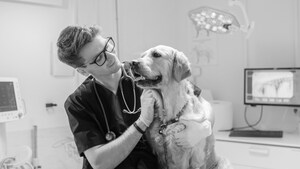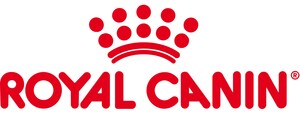Puppy Poll Shows Two In Three Americans Uncertain When Puppies Reach Adulthood
Royal Canin offers puppy care tips on National Puppy Day
ST. CHARLES, Mo., March 21, 2016 /PRNewswire/ -- There's a reason they call it puppy love. This delightful stage in your pet's life brings happiness that more than makes up for the challenges of house training and chewed shoes. As America celebrates National Puppy Day on March 23rd, Royal Canin offers tips and eye-opening survey findings to help us support their growth and development.
Royal Canin, a global leader in pet health nutrition, commissioned a survey of U.S. adults in March 2016 that reveals uncertainty about when the puppy stage ends:
- Most adults are uncertain when puppies transition to adulthood. In all, 50 percent of people say they know when their pet has outgrown the puppy stage, when in fact only 31 percent correctly respond that the transition occurs between 10 and 24 months.
- When asked what the indicators are for graduation into adulthood, more people mentioned the puppy's behavior (28%) and adult teeth coming in (24%) than the correct answer: the puppy's size (23%).
These findings confirm what Royal Canin has known anecdotally for years – most people think a puppy becomes an adult around one year of age, and they are usually surprised to learn that there is actually a wide range between 10 to 24 months, depending on a puppy's size and breed, when a puppy should be considered full grown. This is important because feeding puppy food to your dog for too long or starting your puppy on adult food too early is not ideal for proper growth.
"The nutrients in a puppy's food need to be properly balanced, because excesses can be just as detrimental to your puppy as deficiencies," said Dr. Brent Mayabb, an experienced veterinarian and Royal Canin Vice President of Corporate Affairs. "From proteins, lipids and carbohydrates to vitamins and minerals – if these nutrients are fed in the wrong proportions, nutritional deficiencies or excesses can occur, which could lead to long-term damage to the puppy's health and wellness."
Dr. Mayabb also recommends:
- Vaccinations are important to your puppy as they help prevent contagious, potentially life-threatening diseases. Some are required, while others are recommended. Your veterinarian will help you choose the vaccination program best suited for your puppy, depending on the risk he faces from lifestyle and environment.
- If you already have an older dog that has lived in the house for a long time, he may be resistant to sharing his space with a new puppy. Try introducing the dogs in a neutral area, such as a park, where your older dog may not be so protective.
- Let your puppy explore his new home, but only under your supervision. The first day, block off your puppy in the rooms where you spend the most time. Avoiding some unacceptable behaviors is often just a matter of making a few changes in the household to prevent a curious puppy from coming into contact with items at his eye level.
- When your new puppy arrives, he likely will not be house-trained. Take your puppy out frequently, after every meal and nap, before bed and as soon as you get up in the morning. At the beginning, take him to the same place every time so he can recognize his own scent.
- Getting puppies used to riding in the car from an early age is important so that they don't feel it's an unpleasant experience. Try taking your puppy for a walk or play in the yard to help calm him before a ride.
- When selecting a quality puppy food, choose a food that is specifically suited to the type of dog, according to the size of his breed, age, and sensitivities or the particular features of his breed. Talk with your veterinarian about the best nutrition for your puppy.
Royal Canin makes it easy for you to select the right product. Their dedicated hotline (1-800-592-6687) is staffed with veterinarians and veterinary technicians who are ready to advise you on choosing the best food type to suit your pet's specific needs.
Additionally, MyPetReference.com is a great resource for all your cat and dog information. Royal Canin provides tips on how to provide pets with the best care possible.
ABOUT Royal Canin USA
Royal Canin USA is a leader in science-based cat and dog health nutrition. Founded by a veterinarian in 1968, Royal Canin has more than 40 years of experience in delivering individualized nutritional solutions. In collaboration with an expert team of nutritionists, breeders and veterinarians from around the world, Royal Canin places cats and dogs at the central point of the innovation process. The Royal Canin product line offers a range of diets based on size, age, breed, lifestyle and therapeutic requirements. Royal Canin diets are available at veterinary hospitals and pet specialty stores nationwide. Royal Canin is a subsidiary of Mars, Incorporated. To learn more about Royal Canin, visit www.royalcanin.com and "LIKE" us on Facebook at www.facebook.com/royalcanin.us.
Photo - http://photos.prnewswire.com/prnh/20160321/346147-INFO
SOURCE Royal Canin
Related Links
WANT YOUR COMPANY'S NEWS FEATURED ON PRNEWSWIRE.COM?
Newsrooms &
Influencers
Digital Media
Outlets
Journalists
Opted In






Share this article